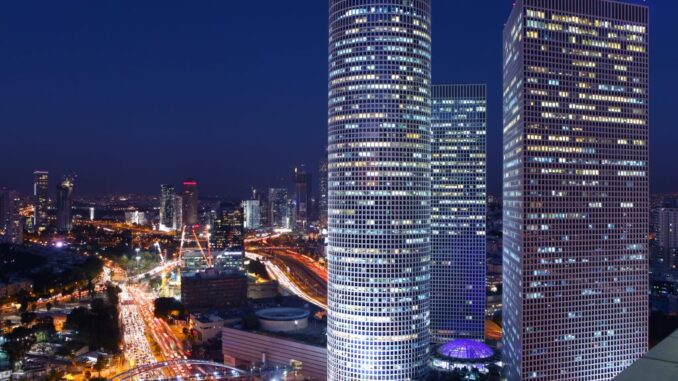T. Belman. Microsoft is not alone. All the tech giants have a major presence in Israel. Intel being the largest but not the first. That honour goes to IBM. I keep asking myself, how can Israel satisfy so many competing companies with the workforce they want and need. When is she going to run out of talent? My daughter tells me that programmers receive astronomical salaries. Two to three times the average salary. Israel looks to recruit from both the Arab and the Hareidi sectors which are considered untapped sources.
How Tech Businesses Manage the Tech Talent Shortage
As global demand for microchips surges, tech giants go all-in on Israel
The World’s Top Tech Firms Turn to Israel
The 25 coolest tech companies in Israel
Offices are in the works in Tel Aviv, Herzliya, Beersheba, Jerusalem and one location to be determined; tech giant plans to recruit over 2,500 more employees

Microsoft plans to open five additional sites in Israel and more than double its R&D workforce in the country over the next four years, the tech giant announced on Wednesday.
Microsoft currently operates development centers in Haifa, Tel Aviv, and Nazareth, and opened a 46,000-square-meter campus in Herzliya late last year. As of the end of 2020, Microsoft employed an estimated 2,300 people in Israel — 2,000 of them in R&D, working on projects including cybersecurity, AI technologies, big data and healthcare. Some 300 people work in sales and marketing.
Microsoft also operates a VC fund and “Microsoft for Startups” programs, whose staff work from the Herzliya offices.
The company opened a local branch in Israel in 1989, and established its first R&D center in Israel, its first outside the US, in 1991.
The company said it has seen substantial growth over the past 18 months across its development centers and hopes to add more than 2,500 engineers and other roles in the coming years to make up a local workforce of over 4,500 people.
The five planned sites include a second location in Tel Aviv that will house over 1,000 employees on 25,000-square-meter grounds, an additional space of about 17,000 square meters adjacent to the Herzliya site for 1,000 more employees, and two new development sites set to open next year in Beersheba and Jerusalem to tap into the talents of “under-represented sectors, such as ultra-orthodox Jews and Israeli Arabs,” the company said. The location of the fifth site is still under consideration and will take into account key factors such as workforce diversity, commute, and work-life balance concerns.

Michal Braverman-Blumenstyk, corporate vice president and general manager of Microsoft’s Israel R&D Center. (Yossi Zeliger)
Microsoft said it employs a hybrid work model and that most of its staff want to divide their work time between the office and offsite locations, according to an internal study. “The ability to choose leads to higher employee satisfaction and organizational flexibility,” the company said in the statement Wednesday.
Michal Braverman-Blumenstyk, corporate VP and general manager of Microsoft’s Israel R&D Center said that “the establishment of the new development sites, along with the recruitment of thousands of new employees in Israel, is proof of Microsoft’s commitment and confidence in our technological impact and talented workforce.”
“This expansion will help us grow, retain, and recruit the most talented people to build the most cutting-edge solutions. We want Microsoft to be accessible to any candidate no matter where they live, so establishing campuses in Jerusalem and Beersheba is especially significant,” she added.
Among tech giants, earlier this year Google said it was setting up a chip development team in Israel, while Nvidia has said it was planning to recruit 600 additional engineers to boost its R&D activities locally.
Amazon is also mulling setting up a data center in Israel, and Oracle is preparing to launch a new data center in Jerusalem that will function as a regional cloud provider for Israeli clients.



Nothing succeeds like success. Very well done!